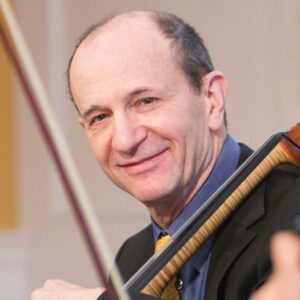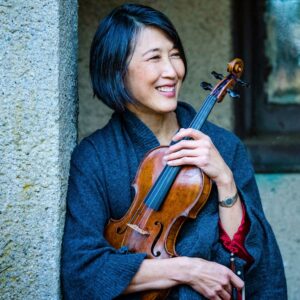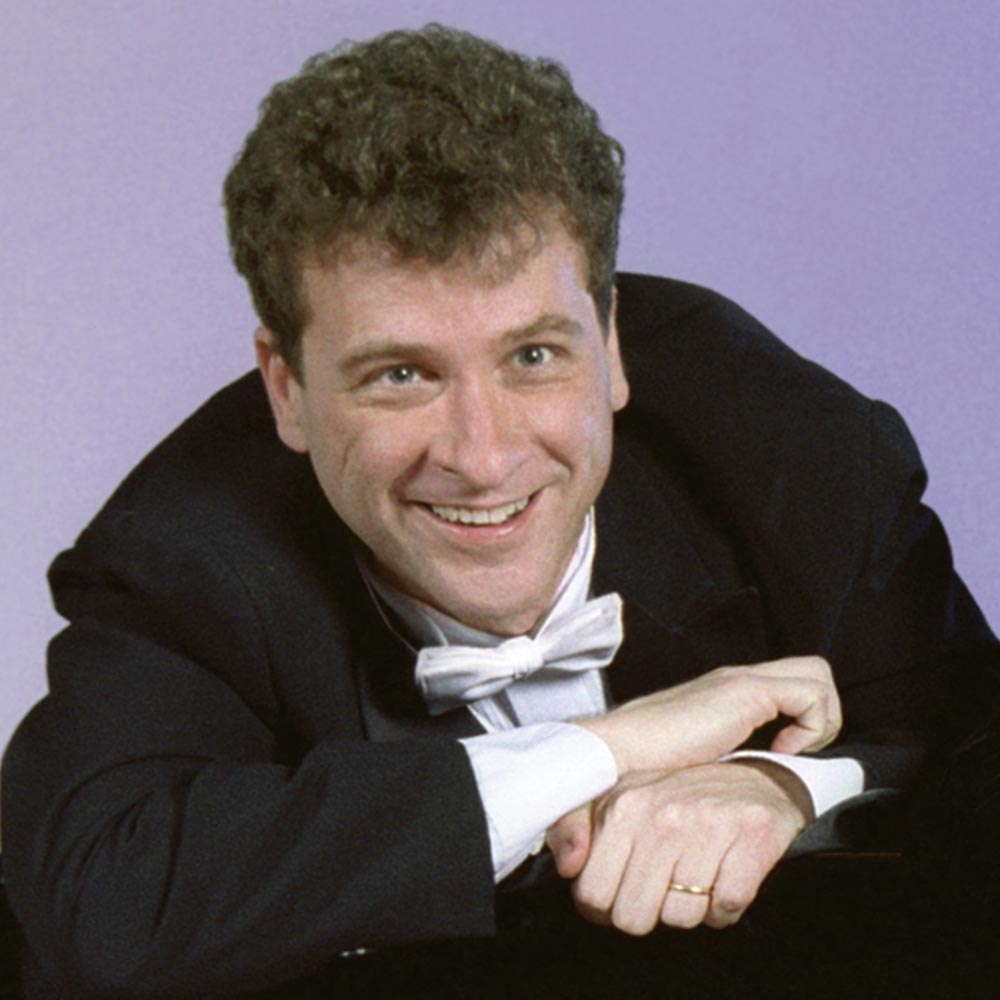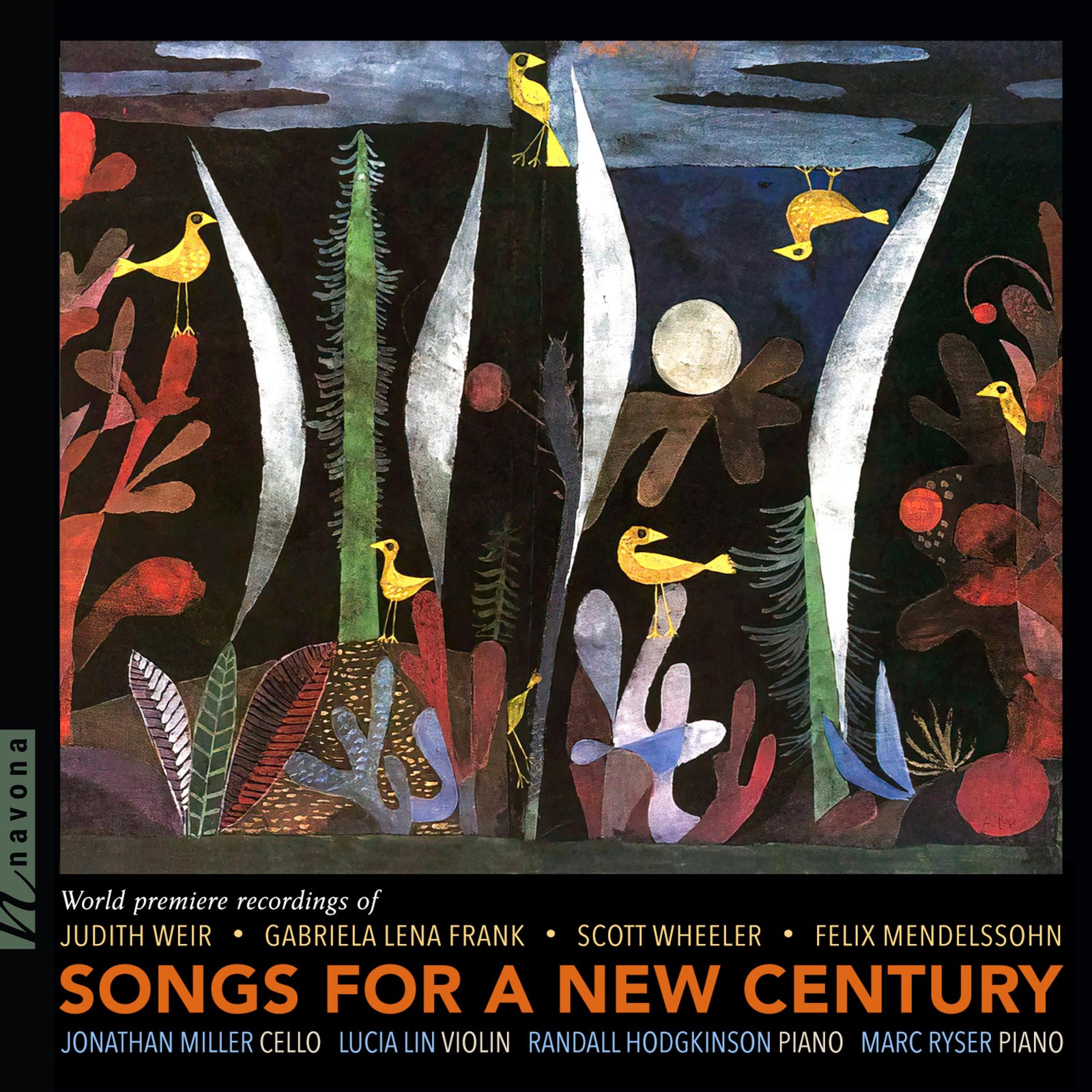Songs for a New Century
Judith Weir composer
Gabriela Lena Frank composer
Scott Wheeler composer
Felix Mendelssohn composer
Jonathan Miller cello
Lucia Lin violin
Randall Hodgkinson piano
Marc Ryser piano
The singing quality of string instruments ties together SONGS FOR A NEW CENTURY, a program featuring both world premiere recordings of new music commissioned for the artists and world premiere recordings of masterpieces by Mendelssohn.
The program opens with a set of Mendelssohn’s Songs Without Words, beginning with the Opus 109 written by the composer for cello and piano. It continues with a set of arrangements for cello and piano, some recorded for the first time, by the 19th century cellist Alfredo Piatti, a personal friend of Mendelssohn’s upon whose cello Jonathan Miller plays. Gabriela Lena Frank’s Operetta for violin and cello, the composer writes, expands upon Mendelssohn’s concept of the “song without words,” creating opera without words that evokes scenes and characters through singing music for the duo of violin (Lucia Lin) and cello. Scott Wheeler’s second cello sonata, Songs Without Words, was inspired by Miller’s singing cello tone. Finally, Judith Weir’s Three Chorales for cello and piano meditate on religious poetry, departing from hymn texts –– and in the third Chorale, a melody from Hildegard of Bingen –– in a triptych that evokes the human condition.
Operetta, Three Chorales, and Cello Sonata #2: Songs Without Words were commissioned by Jonathan Miller and Diane Fassino for the Boston Artists Ensemble.
Listen
Stream/Buy
Choose your platform
Track Listing & Credits
| # | Title | Composer | Performer | |
|---|---|---|---|---|
| 01 | Song without Words, Op. 109 | Felix Mendelssohn | Jonathan Miller, cello; Marc Ryser, piano | 4:34 |
| 02 | Songs without Words: No. 13 | Felix Mendelssohn, arr. Alfredo Piatti | Jonathan Miller, cello; Marc Ryser, piano | 2:25 |
| 03 | Songs without Words: No. 25 | Felix Mendelssohn, arr. Alfredo Piatti | Jonathan Miller, cello; Marc Ryser, piano | 2:37 |
| 04 | Songs without Words: No. 37 | Felix Mendelssohn, arr. Alfredo Piatti | Jonathan Miller, cello; Marc Ryser, piano | 2:14 |
| 05 | Songs without Words: No. 1 | Felix Mendelssohn, arr. Alfredo Piatti | Jonathan Miller, cello; Marc Ryser, piano | 3:03 |
| 06 | Songs without Words: No. 9 | Felix Mendelssohn, arr. Alfredo Piatti | Jonathan Miller, cello; Marc Ryser, piano | 2:17 |
| 07 | Operetta for Violin and Cello: I. Prologue - Semplice, calling | Gabriela Lena Frank | Lucia Lin, violin; Jonathan Miller, cello | 2:08 |
| 08 | Operetta for Violin and Cello: II. Aria I - Moody | Gabriela Lena Frank | Lucia Lin, violin; Jonathan Miller, cello | 4:29 |
| 09 | Operetta for Violin and Cello: III. Recitativo | Gabriela Lena Frank | Lucia Lin, violin; Jonathan Miller, cello | 2:59 |
| 10 | Operetta for Violin and Cello: IV. Aria II | Gabriela Lena Frank | Lucia Lin, violin; Jonathan Miller, cello | 3:16 |
| 11 | Operetta for Violin and Cello: V. Finale: Hue and Cry: Vivo | Gabriela Lena Frank | Lucia Lin, violin; Jonathan Miller, cello | 3:59 |
| 12 | Three Chorales for Cello and Piano: 1. Angels Bending Near the Earth | Judith Weir | Jonathan Miller, cello; Randall Hodgkinson, piano | 4:01 |
| 13 | Three Chorales for Cello and Piano: 2. In Death’s Dark Vale | Judith Weir | Jonathan Miller, cello; Randall Hodgkinson, piano | 5:26 |
| 14 | Three Chorales for Cello and Piano: 3. O Sapienta | Judith Weir | Jonathan Miller, cello; Randall Hodgkinson, piano | 6:12 |
| 15 | Cello Sonata #2: Songs Without Words for Cello and Piano: Among the trees | Scott Wheeler | Jonathan Miller, cello; Marc Ryser, piano | 5:27 |
| 16 | Cello Sonata #2: Songs Without Words for Cello and Piano: Forest at night | Scott Wheeler | Jonathan Miller, cello; Marc Ryser, piano | 2:33 |
| 17 | Cello Sonata #2: Songs Without Words for Cello and Piano: Barcarolle | Scott Wheeler | Jonathan Miller, cello; Marc Ryser, piano | 6:36 |
Tracks 1-11
Recorded August 10 & December 21, 2022 at Mechanics Hall in Worcester MA
Recording Session Producer & Engineer Brad Michel
Editing & Mixing Brad Michel
Tracks 12-17
Recorded December 19, 2017 & June 25, 2019 at WGBH Fraser Studio in Boston MA
Recording Session Producer Sharan Leventhal
Recording Session Engineer Antonio Oliart
Editing & Mixing Antonio Oliart
Mastering Brad Michel
Operetta
Commissioned by Diane Fassino and Jonathan Miller and received its world premiere on September 16, 2022 by the Boston Artists Ensemble
Three Chorales
Commissioned by Jonathan Miller and received its world premiere by the Boston Artists Ensemble on September 23 and 25, 2017 at Hamilton Hall in Salem, MA and St. Paul’s Church in Brookline MA to open their 2017-2018 season. Formerly released by Albany Records, permission for rerelease from Susan Bush.
Cello Sonata #2: Songs Without Words
Commissioned by Jonathan Miller and Diane Fassino, received its world premiere by the Boston Artists Ensemble on April 20 & 22, 2018
Cover art of “Landscape with Yellow Birds” (1923) by Paul Klee
Piano by Steinway
Cello by Matteo Goffriller, “Paganini – Piatti” made in Venice in 1700
Violin by Pietro Guarneri, made in Venice in 1740
Executive Producer Bob Lord
VP of A&R Brandon MacNeil
VP of Production Jan Košulič
Audio Director Lucas Paquette
VP, Design & Marketing Brett Picknell
Art Director Ryan Harrison
Design Morgan Hauber
Publicity Chelsea Kornago
Artist Information

Jonathan Miller
Jonathan Miller was a pupil of Bernard Greenhouse. He is a 43-year veteran of the Boston Symphony Orchestra and has performed as a soloist with the Hartford Symphony; the Boston Pops, Cape Ann Symphony, and Newton Symphony; Symphony By The Sea, and the Metropolitan Symphony Orchestra of Boston. Miller won the Jeunesses Musicales auditions, twice toured the United States with the New York String Sextet, and appeared as a member of the Fine Arts Quartet. He performed as a featured soloist at the American Cello Congress in both 1990 and 1996.

Lucia Lin
Lucia Lin currently enjoys a multi-faceted career of solo engagements, chamber music performances, orchestral concerts with the BSO, and teaching at Boston University’s College of Fine Arts. Lin made her debut at age 11, performing the Mendelssohn Violin Concerto with the Chicago Symphony, then went on to be a prizewinner of numerous competitions, including the prestigious International Tchaikovsky Competition in Moscow. She joined the BSO at the age of 22, and has also held positions as acting concertmaster with the Milwaukee Symphony and for two years, concertmaster with the London Symphony Orchestra.

Randall Hodgkinson
Randall Hodgkinson (piano) won the International American Music Competition in 1981 and his October 1986 formal New York recital debut at Alice Tully Hall under the competition’s auspices was greeted with critical acclaim. Hodgkinson has, in recent years, performed with orchestras including those of Philadelphia, Atlanta, Albany, Buffalo, Westchester, Oakland, and Caramoor and has collaborated with such conductors as Leonard Bernstein and Gunther Schuller. 1985 saw his European orchestral debut with the Santa Cecilia Orchestra of Rome. He is a featured artist on the Bösendorfer Concert Series aired over WNYC – FM in New York City and has recorded for the Nonesuch, CRI, and New World labels. Hodgkinson studied with Veronica Jochum and Russell Sherman at the New England Conservatory where he now serves on the faculty. He is a member of the Gramercy Trio.

Marc Ryser
Pianist Marc Ryser performs in North America and Europe. Among the highlights of his solo career are the first performance in Bulgaria of Bela Bartók’s 3rd Piano Concerto, with the Vratsa Philharmonic, and concert tours in Switzerland which have included recitals and concerto performances with the Sinfonietta de Lausanne. He is a founding member of Music-by-the-Sea, a festival and artists’ residency on the Pacific coast of Vancouver Island, now in its seventh season. Ryser is a member of the piano faculty at the New England Conservatory Preparatory School, the Walnut Hill School, the Rivers School Conservatory, and is adjunct piano faculty at Brandeis University. He has appeared as a guest artist at Music from Salem, the Rockport Chamber Music Festival, and with the Walden, MIT, Holy Cross, and Smith College Chamber Players. He is also well known at the Banff Centre for the Arts in Alberta, Canada, where he was senior artist and resident collaborative pianist from 2003-2005.

Gabriela Lena Frank
Gabriela Lena Frank is a highly acclaimed American composer known for her innovative and diverse musical style that blends elements of her Peruvian, Chinese, and Jewish heritage. Born in Berkeley CA, in 1972, Frank has received numerous awards and commissions for her compositions, which often explore cultural identity and cross-cultural influences. She holds a Master’s degree in Music Composition from the University of Michigan and a Doctorate from Indiana University. Frank has served as a composer-in-residence for various orchestras and institutions, including the Detroit Symphony Orchestra and the San Francisco Chamber Orchestra. Her recent opera El Ultimo Sueño de Frida y Diego was premiered by the San Francisco Opera in June of 2023. Her works, ranging from orchestral pieces to chamber music and operas, showcase a deep commitment to exploring the intersections of different musical traditions, making her a prominent figure in contemporary classical music.

Judith Weir
Judith Weir is a British composer, born in Cambridge, England to Scottish parents in 1954. She studied at Cambridge University and at Tanglewood, with Gunther Schuller. She taught for some years at Glasgow University and the Royal Conservatoire of Scotland, and directed the Spitalfields Festival in London’s East End. She was resident composer with the City of Birmingham Symphony Orchestra, collaborating with the orchestra’s then director, Simon Rattle, and more recently has been Associate Composer to the BBC Singers.

Scott Wheeler
Scott Wheeler’s music has been performed by the Chamber Music Society of Lincoln Center, Boston Artists Ensemble, Washington National Opera, violinist Gil Shaham, conductor Kent Nagano, and many others. Recent premieres include works for pianists Eliza Garth and Maxim Lando as well as sopranos Laura Strickling and Kristina Bachrach. In 2023 Scott appeared as pianist at Merkin Concert Hall, Bargemusic, Guarneri Hall in Chicago, the University of Nevada Las Vegas, and Villa La Pietra in Florence, Italy.

